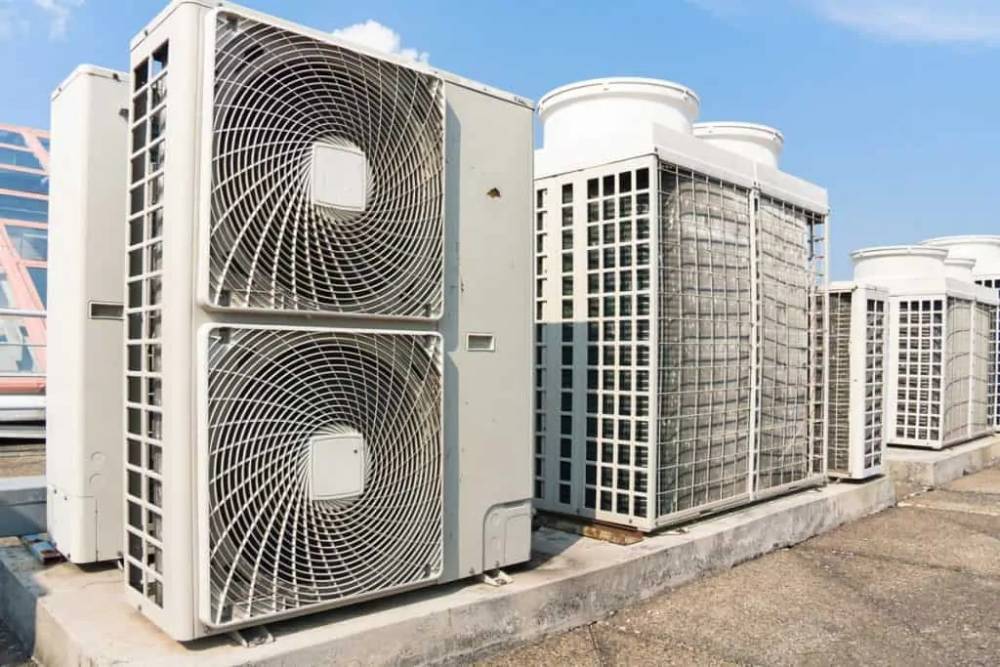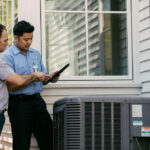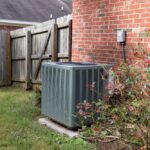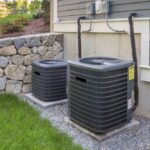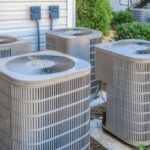Table of Contents
When most people think of their HVAC system, they picture comfort — a cool office in the Oklahoma summer or a warm shop in the middle of winter. But your heating, ventilation, and air conditioning system does more than control temperature. It also plays a major role in your indoor air quality (IAQ) — the health and cleanliness of the air you breathe indoors.
Poor air quality can lead to health issues, reduced productivity, and even damage to your building. At Rescue Heat & Air, we help Oklahoma homes and businesses understand how their HVAC systems impact air quality — and how to improve it.

Why Indoor Air Quality Matters
The EPA estimates that indoor air can be 2–5 times more polluted than outdoor air. For Oklahoma businesses and homes, this is a big deal because pollutants get trapped indoors and recirculated through your HVAC system.
Poor IAQ can cause:
- Headaches and fatigue
- Respiratory irritation and allergies
- Increased asthma symptoms
- Reduced comfort and concentration
How Your HVAC System Influences Indoor Air Quality
1. Filtration
Your HVAC filter is the first line of defense against dust, pollen, pet dander, and other airborne particles.
- Clean filters trap pollutants and improve IAQ.
- Dirty filters recirculate contaminants and reduce efficiency.
Pro Tip: Change your filter every 1–3 months, depending on usage and environment.
2. Ventilation
A well-functioning HVAC system ensures proper ventilation — bringing in fresh air and removing stale, polluted air.
- Without proper ventilation, indoor air becomes stagnant, and pollutants build up.
- Modern systems can integrate energy recovery ventilators (ERVs) to exchange indoor and outdoor air without losing heating or cooling efficiency.
3. Humidity Control
Too much or too little humidity can harm both your health and your building.
- High humidity encourages mold and bacteria growth.
- Low humidity can dry out skin, eyes, and respiratory passages.
Your HVAC system, with the right humidification or dehumidification equipment, can maintain optimal indoor humidity levels (typically 30–50%).
4. Air Duct Cleanliness
Your ductwork is like the lungs of your HVAC system. Over time, it can collect:
- Dust and debris
- Mold spores
- Pest droppings and allergens
If not cleaned, your system will continually circulate these pollutants. Professional duct cleaning helps restore clean airflow.
5. System Maintenance
Neglected HVAC systems become breeding grounds for bacteria, mold, and other contaminants.
- Coil cleaning, drain line clearing, and inspecting for mold growth keep your system clean.
- Seasonal maintenance ensures optimal performance and better IAQ year-round.
5 Steps to Improve Indoor Air Quality With Your HVAC System
- Upgrade your air filter to a higher MERV rating (without restricting airflow).
- Schedule seasonal HVAC maintenance to keep components clean.
- Seal ducts to prevent dust and pollutants from entering.
- Add air purification systems such as UV lights or HEPA filters.
- Monitor humidity levels and use humidifiers or dehumidifiers as needed.
How Rescue Heat & Air Can Help
We don’t just fix heating and cooling problems — we also help Oklahoma homeowners and businesses breathe cleaner air. Our IAQ solutions include:
- High-efficiency filter installation
- Air purification systems
- Humidifiers and dehumidifiers
- Professional duct cleaning
- HVAC maintenance plans tailored to your needs
Call Rescue Heat & Air today at 918-946-6681 or request an indoor air quality consultation to improve the air you breathe.

